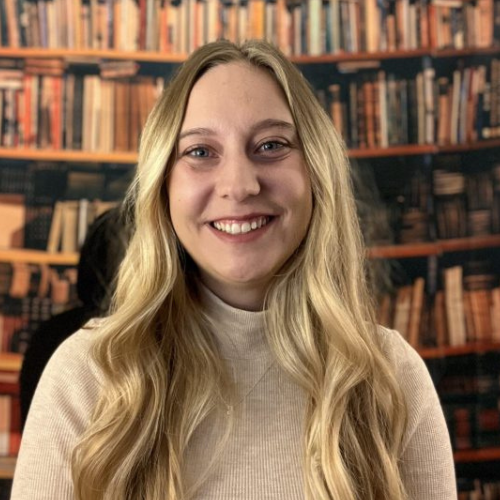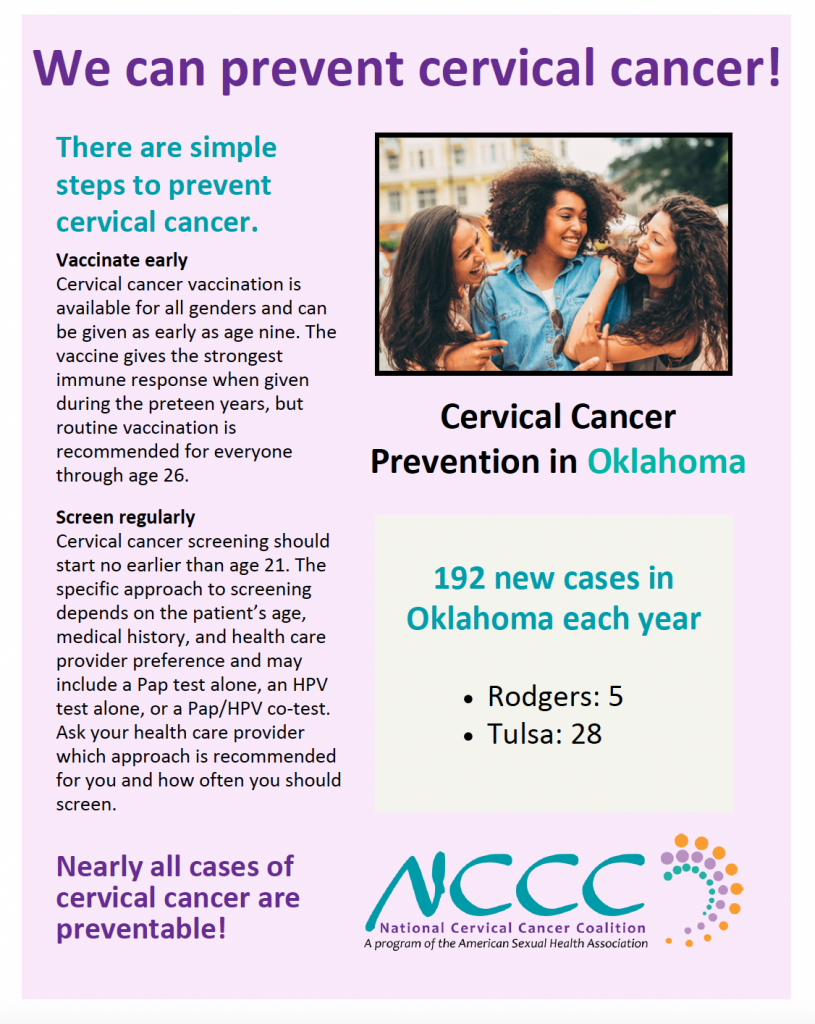NCCC Oklahoma (Tulsa) Chapter


Tracy’s Story
I am an HPV nerd. Years ago, I worked in reproductive and sexual health clinics conducting clinical trials. Our research group worked with various pharmaceutical companies and sponsors to develop the Cervarix vaccine and develop today’s Pap smear testing products and STI testing protocols.
I still remember women’s confusion when they were told they had HPV: a virus that none of them had heard of. We explained HPV is so common almost everyone that is sexually active will become infected with unless they are vaccinated. Yet, at the time, even health care providers were just learning about HPV’s dangers. I heard personal stories from women and even adolescents who had health complications because of HPV, but HPV rarely gave them any signs or warnings. HPV can lay silent—but we must not be silent in order to fight cervical cancer!
Today we know human papillomavirus impacts both females and males. Despite the newest generation Gardasil-9 vaccine that prevents certain cancers, advocating for comprehensive sexual health education is challenging…especially in the Bible belt. Oklahoma is in a crisis. Our HPV vaccine uptake is among the lowest in the nation. This means disproportionate rates of HPV-associated health issues will still impact our mothers, daughters, and sisters.
Confusion over this sexually transmitted infection still exists, and I’m committed to clear the misunderstandings through my research, presentations, and partnerships across Oklahoma to raise HPV awareness. Let’s spread the facts to increase the vax!
Emily’s Story
Women’s health is extremely close to my heart; I have spent countless hours speaking with friends and family members who have seen the disparities throughout healthcare, especially in women’s health. I think that one of the first steps to changing the way individuals see the importance of preventative medicine and screenings is through education.
Health education is always at the forefront of my mind; I spend a lot of time talking with others about the importance of sex education for all individuals and the importance of preventive health. I believe that having a better understanding of the significance of early detection and supporting initiatives that promote regular check-ups, screenings, and vaccinations can help to encourage individuals to utilize these resources.
My goal is to help raise awareness about HPV in a way that will make individuals aware of the importance of using preventive measures and not being afraid to ask questions.
HPV Risk Perceptions and Knowledge Among Oklahoma Undergraduates: Implications for Vaccination Efforts
Chapter leader Tracy Freudenthaler co-authored this study on Oklahoma undergraduates’ perceptions of HPV risk, risk factors, and HPV knowledge. Surveys were administered to students aged 18-24 at two universities. Regardless of vaccination status, respondents generally perceived their risk as low, yet most did not identify the HPV vaccine as a protective factor. Young adults who are not sexually active may hold a false sense of safety from HPV.
Cervical Cancer Prevention in Oklahoma
This downloadable fact sheet outlines the key steps to prevent cervical cancer—vaccinate early and screen regularly. Customized for the Tulsa chapter, it also highlights statistics that show the burden of cervical cancer in Oklahoma.


